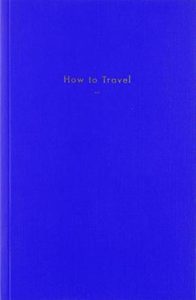Highlights & Annotations
We should ask ourselves, when traveling, “what is missing or presently too weak within us, and on that basis, set about identifying a location somewhere...with the power to help us develop into the sort of people we need to become” (8)
Exotic = “anywhere we yearn to go which we suspect has something important to teach us” (12)
“Maybe fitting in is overrated. Maybe not looking like a fool is simply not an option in any rich and interesting life, wherever it may unfold.” (30)
Re: The Pleasure of Otherness – “everything is satisfyingly ‘other’. This can become an invitation to explore alternate ways of living and thinking.” (45)
“What we call ‘loss of desire’ is usually simply a kind of anger with a partner that hasn’t had a chance to understand itself.” (53)
Re: drawing in place of taking photos – “drawing can teach us to see: to notice properly rather than gaze absentmindedly. In the process of recreating with our own hand what lies before our eyes, we naturally move from a position of observing beauty in a loose way to one where we acquire a deep understanding of its parts.” (67)
- Slow = choices more deliberate
John Ruskin: “No changing of place at a hundred miles an hour will make us one whit stronger, or happier, or wiser. There was always more in the world than man could see, walked they ever so slowly; they will see it no better for going fast. The really precious things are thought and sight, not pace. It does a bullet no good to go fast; and a man, if he be truly a man, no harm to go slow; for his glory is not at all in going, but in being.” (67)
Re: walking – “We sometimes cannot work it all out by staying rooted in one place. We have stared at the screen too long, we have been bumping into the same inner obstacles without progress, we have grown claustrophobic within ourselves.” (111)
